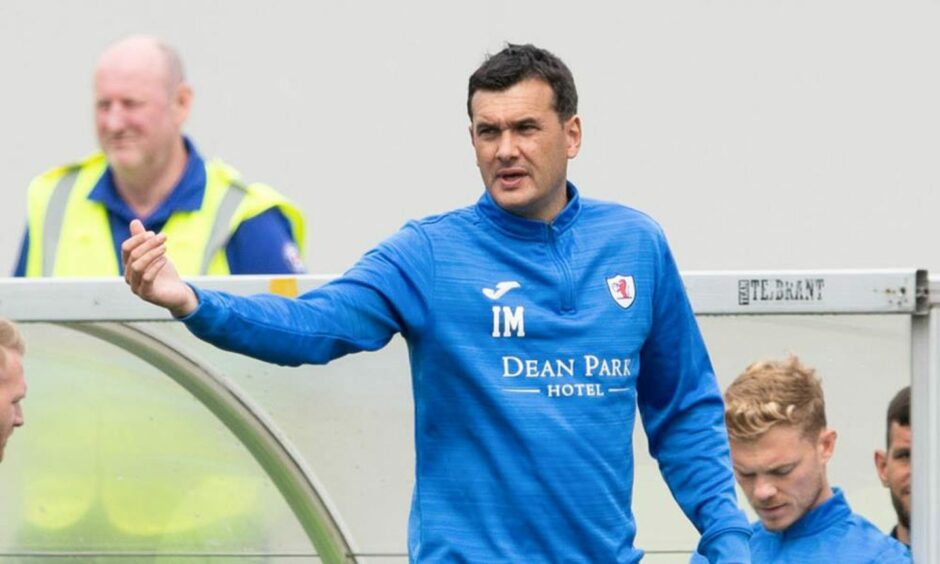Raith Rovers supporters are right to feel disappointed with the club’s start to the Scottish Championship.
However Ian Murray is a manager who is only a few months in the door in a uniquely tough transfer window – described so by a fair few of his peers.
The reasons are many, interconnected and include – though are by no means limited to – an unprecedented winter World Cup, Brexit, a cost-of-living crisis and Scottish clubs perhaps being more reluctant to loan out players.
Ian Murray, until Saturday, was relaxed with his squad and had previously talked about not adding bodies for the sake of it.
That changed after defeat to Inverness, with the Raith boss hinting at a change to the set-up and the pressing need for a striker.
Perhaps patience was a perfectly good strategy in previous windows – but what has changed this time?
World Cup trickle-down effect
During the summer The Athletic suggested that English sides could be less willing to loan out players on the fringes given the unknowns of the Qatar World Cup.
Who knows what condition the world’s elite will be in when they return to their respective clubs following a winter tournament – especially after the gruelling schedule of the past few seasons?
Moreover, who knows what impact that will have on the next transfer window?
Calling on that that young, hungry player to fill in for a star injured or fatigued after the World Cup may be handier than dipping into the January transfer market.
Brexit and the Paul Hartley effect
Restrictions on English clubs due to increased red tape on visas due to leaving the European Union may also have a knock-on effect.
Scotland is exempt from these new requirements but that has not stopped them from having an impact on the transfer market.
This is coupled with a rise in Scottish talent in recent years and more and more of them now playing for sides in the English Premier League.
Many have now have also headed to the likes of Serie A.
Jhon Lucumí e Lewis Ferguson estrearam pelo Bologna na partida contra o Milan. No geral, 944 jogadores já vestiram a camisa do clube italiano profissionalmente, mas entre eles houveram somente três colombianos e dois escoceses. pic.twitter.com/ILcZfiaLMh
— Bologna FC – Brasil 🇧🇷 (@bolognafcbrasil) August 29, 2022
Some English sides, frustrated in the European markets, and by the insane premium on homegrown players, are turning to the Scottish market for bargains.
Thrown into the mix you have Paul Hartley who left Cove Rangers for Hartlepool United in the summer.
Fewer loans?
This is a difficult one to quantify as there is still a month to go for domestic loans to be done.
Furthermore, the number of players going out can be relative to many factors, not least fluctuating squad sizes.
To pick one example, however, at this stage last season Hearts – notoriously prolific in this area – had loaned out 11 players, eight to the Scottish lower leagues (and one to the Lowland League).
Half of those eight were sent to the Championship.
With European group stage football, a B team and the return of the reserve league, this season the capital side has so far loaned out two players – both to Kelty Hearts.
Change to substitution limits
It is becoming the norm across the game for five substitutions to be allowed and Scotland has followed suit.
This has also meant an increase in the number of places on the bench to nine.
Just two Scottish Championship sides filled their bench at the weekend – Ayr United and Queen’s Park.
By contrast, injury-hit Hearts were the only Premiership side not to fill theirs, naming eight subs.
Cost of living
There are also unknown – sometimes intangible – impacts from the cost of living, growing by the day.
This will apply to clubs’ budgets, make players less reluctant to travel and leaves fans with less disposable income.
Raith are not immune to the effects of all this, but neither are they alone in struggling to bring in players as quickly as they’d have liked.













Conversation